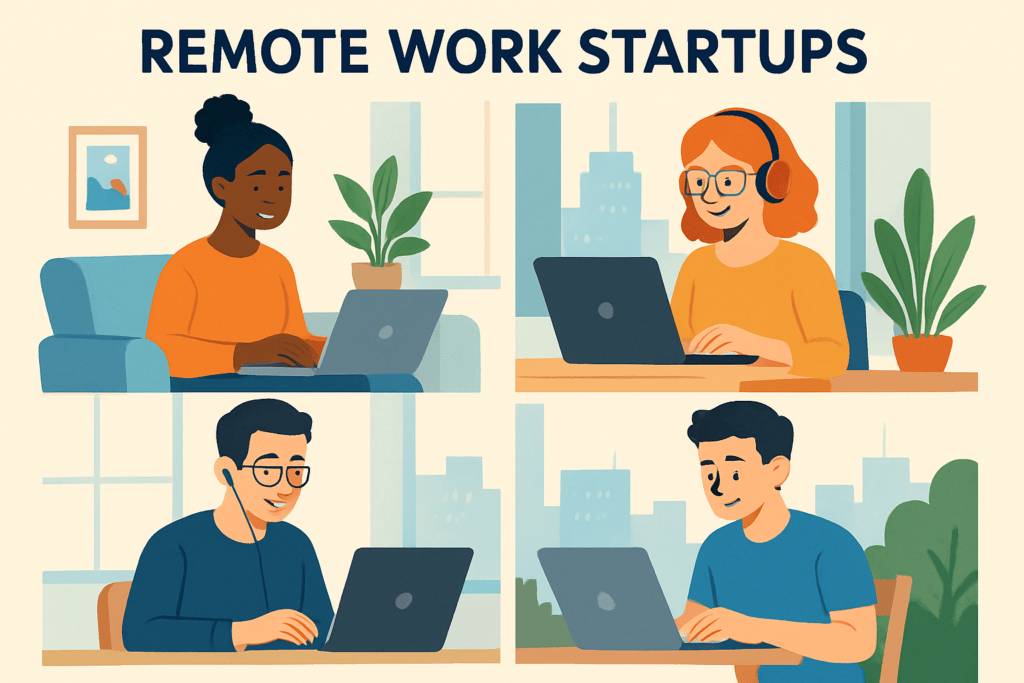How Remote Work is Reshaping Startup Cultures
What Happens After Winning Millions?
Winning a life-changing lottery jackpot is every player’s dream, but few are prepared for what comes next. The sudden influx of wealth can bring excitement, but also a wave of challenges.
Financial Decisions
Many winners find themselves overwhelmed by financial decisions:
- Managing Taxes – A large portion of the winnings often goes to taxes. Poor planning can lead to unexpected legal and financial issues.
- Investments – Making smart investments is crucial for securing future financial stability. Some winners hire financial advisors for guidance.
- Reckless Spending – Without proper budgeting, many find their fortune dwindling faster than expected.
Lifestyle Changes
Winning millions often leads to drastic lifestyle changes:
- Luxury Purchases – Extravagant homes, exotic cars, and lavish vacations become a reality.
- Social Dynamics – Friends and distant relatives might emerge, seeking a share of the winnings, creating tension and difficult choices.
- Privacy and Attention – Some winners opt for a low-profile life to avoid the pressure and media attention that accompany sudden wealth.
Embracing or Avoiding the Limelight
How winners adjust to their new reality varies widely. While some embrace luxury, others might choose discretion to maintain a semblance of normalcy.
Philanthropy and Legacy
Beyond personal wealth, some winners channel their resources into making a positive impact:
- Charitable Donations – Many choose to support causes they are passionate about through donations and philanthropic endeavors.
- Community Projects – Investing in local communities, such as funding scholarships or revitalizing towns, helps create lasting change.
- Business Investments – Launching new businesses can stimulate economic growth and provide job opportunities.
Conclusion
The way winners handle their newfound riches determines not just their own future, but also the legacy they leave behind. Whether through philanthropic efforts or personal management, the stories of lottery winners are varied and complex, illustrating that wealth can be either a stepping stone or a stumbling block depending on the choices made.
The New Normal: Startups and Remote Work
Not long ago, remote work was considered a perk only a handful of startups offered, maybe something you’d find in a job ad for a “forward-thinking” company. That’s changed. Today, it’s the expectation, not the exception. Most new startups are built from the ground up with remote or hybrid teams—the question isn’t “if” but “how” to do remote well.
Startups lean into remote work because they can move faster and hire smarter. Without the anchor of an office lease, founders focus on assembling the best team, not just whoever lives nearby. The coffee shop or coworking space becomes the office, and standups happen on Zoom before breakfast. The pivot to remote isn’t just about saving money—it’s about flexibility and survival. Startups can scale talent, cut overhead, and skip the hassle of relocating new hires.
Remote-first culture also sets a tone. It says, “We trust you to get the job done, wherever you are.” That attracts problem solvers, self-starters, and people who value autonomy as much as ambition. For startups, this is the new normal, and for the most part, nobody’s looking back.
Why Remote Work Attracts Startup Talent
The magic word for startup talent these days is freedom. Remote work startups offer the kind of flexibility that’s pretty much impossible in a traditional office job. No more being tied to a city, a commute, or even a single time zone—anyone, anywhere can join the team. That global reach is a big deal for founders looking to build a diverse, high-impact squad without waiting for someone to relocate or get a visa.
There’s another upside: access to skill sets and perspectives founders wouldn’t find if they hired just locally. Recruiting isn’t limited to a 10-mile radius around a co-working space in San Francisco or Berlin. Now, a coder in Lagos, a designer in Prague, and a marketer in Buenos Aires can all ship features from day one. Remote work startups aren’t just tapping into bigger talent pools—they’re building teams faster and getting fresh thinking in the mix from the jump.
Turns out, when people can work where (and sometimes, when) they want, you attract more independent, motivated folks. People who value autonomy over free office snacks are exactly the self-starters startups need. Talent is choosing companies that get this, and remote work startups are at the top of that list.
Major Shifts in Startup Culture
The shift to remote work has rewritten the playbook for startup culture. Old-school watercooler talk? Now it happens on Slack threads or spontaneous Zoom calls. For work-from-home startups, building camaraderie is less about ping pong tables and more about finding creative ways to connect virtually—think weekly standups, “donut” chats, or the occasional remote game night.
Collaboration has also been overhauled. Instead of huddling in glass-walled conference rooms, teams work across time zones, relying on tools like Notion, Asana, and Loom. These platforms don’t just support remote operations—they’re at the core of modern telecommuting benefits, helping everyone stay in sync without micromanagement or endless meetings.
Rituals matter more than ever. Startups are intentionally designing new rhythms: company-wide check-ins, dedicated “focus days,” or virtual off-sites. The goal? To instill a shared identity, even when everyone’s miles apart. Culture isn’t about a plush office anymore. In remote work startups, it lives in every call, doc, and digital fist-bump.
The Benefits: Culture, Productivity, and More
Cutting the daily commute is a superpower in itself. Startup founders and employees now repurpose those hours into focused work, quick walks, or precious family time. The rhythm of work-from-home startups taps into real work-life balance—slack messages answered while a load of laundry spins, or product brainstorms happening as sunlight fades on a different continent.
Remote work startups leap over old geographic barriers. With talent scattered everywhere, teams can hand off projects as the sun rises and sets from Brazil to Berlin. This “pass-the-baton” workflow means progress doesn’t sleep. Flexibility isn’t just a perk; it’s a performance advantage.
The productivity numbers back it up: founders often share stories of faster MVP launches and easier pivots, all thanks to asynchronous work powered by telecommuting benefits. Investors have noticed. A growing crop of early-stage startups swear that shunning a rented office isn’t just a budget move—it’s a talent magnet and a velocity boost. Culture is still king, but now it thrives across time zones, in Slack threads and video calls, rather than cramped conference rooms.
The Challenges and Emerging Solutions
If all this sounds like a remote utopia, reality begs to differ. For every story about liberated schedules, there’s another about vanishing culture or teammates who have never met in person. Startups, already operating on thin margins and timelines, get hit especially hard when it comes to building trust and camaraderie without a shared space.
The answer? There isn’t one silver bullet, but there are a few sharp tools. Some startups attack the problem head-on with over-communication—meaning more frequent standups, check-ins, and regular all-hands. Others swear by transparency: open dashboards, shared OKRs, and no secrets. A growing number supplement the virtual with physical by hosting company offsites and meetups, even if only once or twice a year.
Hybrid setups—a mix of in-person and remote—are gaining traction. They give teams the connectedness of face time with the autonomy of home offices. Still, every solution requires constant tuning. The landscape is evolving, and the best remote work startups are not just adapting, but actively shaping what comes next. For a deeper dive into the tech fueling this shift, see this in-depth guide.
Startup Best Practices for Going Remote
Simplicity wins. The best remote work startups nail the basics before anything else: clear values, clear workflows, minimum friction. That starts with writing down what matters—vision, mission, and shared principles you can reference as you scale (and as time zones multiply).
Ditch the idea that hours at a desk equals productivity. Instead, set expectations around output and results. Trust algorithms and dashboards, not presence indicators. Build workflows asynchronously—tools like Notion, Loom, and Google Docs are your best friends. Meetings are sacred; only have them when absolutely necessary and always with an agenda.
Culture doesn’t exist in a vacuum, so build your digital community on purpose. Set up Slack or Discord channels for #random, #wins, and #help threads. Celebrate birthdays in Zoom, run remote game nights, send memes. These rituals may seem minor, but they’re your new office water cooler—don’t neglect them.
And, above all, keep adapting. Remote culture is a moving target. What worked last quarter might flop tomorrow. Survey the team, try new tools, and pivot fast. In this world, iteration is survival.
What’s Next for Remote Work Startups?
The future for remote work startups is all about doubling down on what’s working, and getting creative with everything that isn’t. Expect a new wave of tools designed to make distributed teams even slicker—think real-time collaboration, smarter asynchronous workflows, and integrations that just don’t quit. The days of expensive downtown offices are numbered; startups are ditching leases in favor of funding better home setups and flexible coworking passes.
Team perks? Consider them rebooted. Health stipends beat foosball tables now. Biannual offsite retreats replace weekly happy hours. AI is no longer optional; it’s expected to handle the grunt work, keep team communication sharp, and even help managers spot burnout before it hits. And don’t be surprised when startups take VR headsets or digital whiteboards for granted at every launch meeting—any tech that bridges distance is fair game.
In short, remote work startups are rewriting the playbook—and the next chapter is going to look less like a traditional office, and more like a global network of digital pioneers connected by ambition and a Wi-Fi signal.
What Happens After Winning Millions?
Winning a life-changing lottery jackpot is every player’s dream, but few are prepared for what comes next. The sudden influx of wealth can bring excitement, but also a wave of challenges.
Navigating Financial Decisions
Many winners find themselves overwhelmed by choices related to their newfound wealth:
- Tax Management: Winning millions often comes with significant tax implications. Winners must plan accordingly to avoid legal issues.
- Investment Strategies: Some hire financial advisors to secure their future, while others may make impulsive choices that quickly deplete their funds.
- Spending Habits: Without careful budgeting, the dream of endless riches can transform into a financial nightmare.
Lifestyle Transformations
The immediate lifestyle changes following a big win can be both exhilarating and demanding:
- Acquiring Luxuries: Luxury homes, exotic cars, and extravagant vacations become reality.
- Social Challenges: Friends and distant relatives often emerge seeking a share of the winnings, creating tension and difficult choices.
- Privacy Concerns: Some winners choose a low-profile life to avoid the pressure and attention of sudden wealth.
Giving Back: Building a Legacy
Beyond personal wealth, some winners use their fortunes to make a difference:
- Charitable Contributions: Many opt to make significant charitable donations.
- Community Engagement: Winners may fund community projects or launch nonprofits.
- Business Investments: Investing in businesses can stimulate job creation and economic growth.
Conclusion
The way winners handle their newfound riches determines not only their personal future but also the impact they can leave behind. Stories of lottery winners range from financial downfall to inspiring tales of philanthropy, emphasizing the profound responsibility that accompanies such fortune.
The Bottom Line
Remote work isn’t just a perk—it’s rewiring how startups operate, hire, and thrive. Teams are leaner, more diverse, and scattered across the globe, and that’s quickly becoming the norm. The remote work startups that succeed aren’t just those with slick tools or flexible hours; they’re the ones that build adaptation into their DNA. If you want to make it in this new terrain, remember: culture isn’t about foosball tables or happy hours—it’s about how you connect, build trust, and deliver, no matter where your laptop is plugged in.


















































































































































































































































































































































































